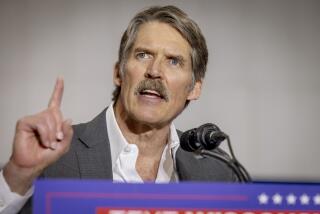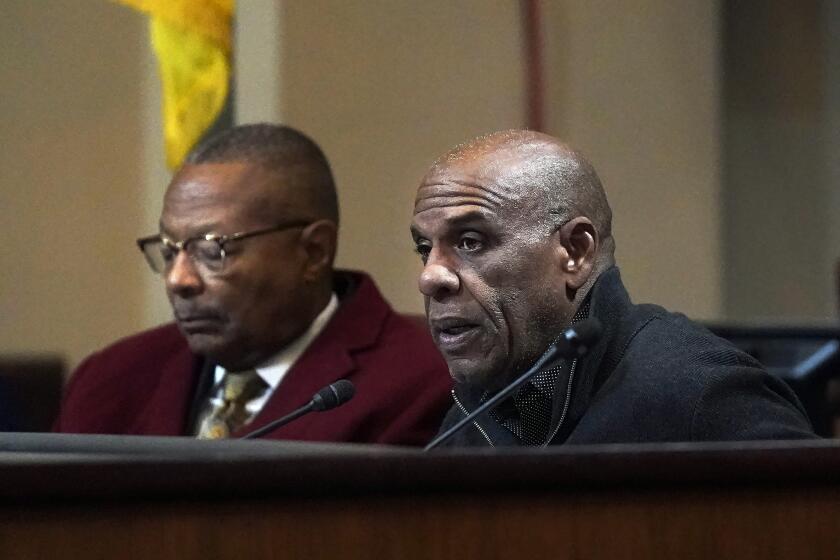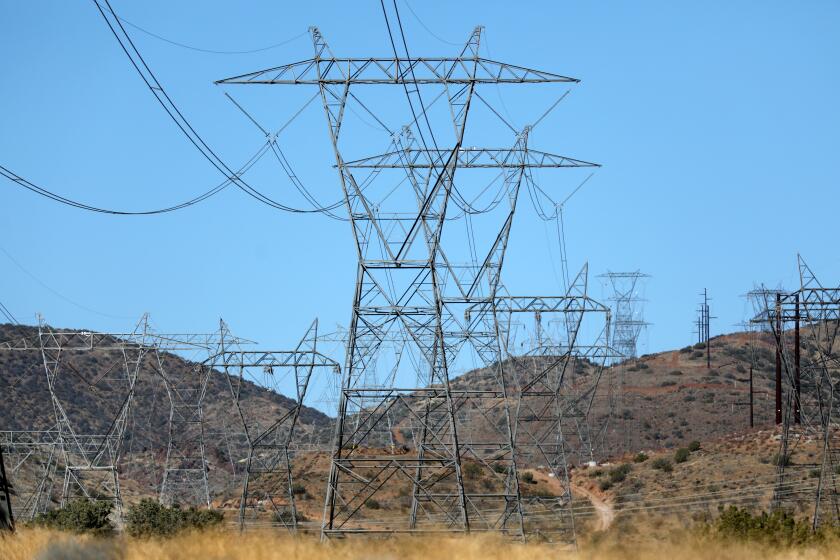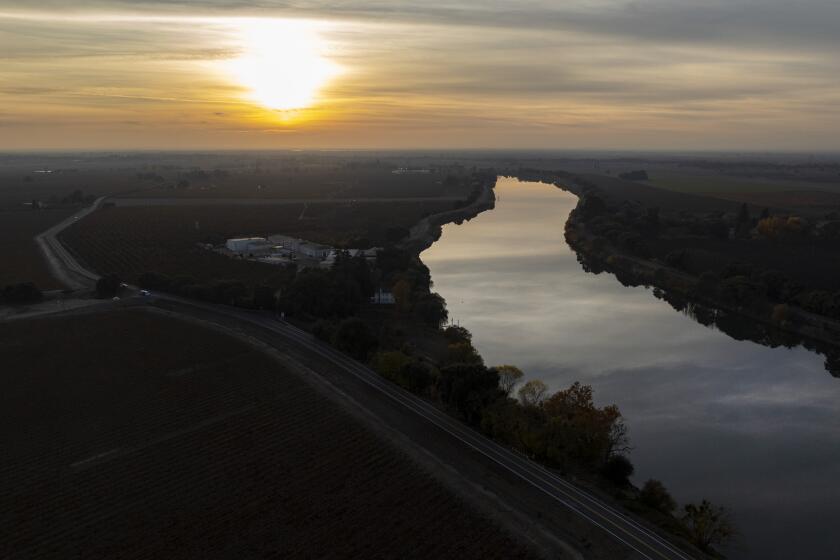Giving California a voice in presidential contests
What’s sure to be a hot presidential contest is warming up and once again California is likely to be a mere spectator in a lousy seat.
Starting to get excited about watching Sen. Hillary Rodham Clinton of New York and Sen. Barack Obama of Illinois compete here, then helping to select one as the Democratic nominee? Not a chance.
Intrigued about weighing in on Arizona Sen. John McCain versus former New York Mayor Rudolph W. Giuliani for the Republican nomination? Sorry, you can only root from the bleachers.
California’s 2008 presidential primary won’t be held until June, long after the nominations already have been locked up. Our votes will be meaningless.
Maybe it’s time for California to become an early caucus state, voicing its candidate preferences and choosing national convention delegates through community meetings of party activists and interested citizens, as Iowans long have done to great ballyhoo. But more about that later.
First, the horrid, humbling background:
California experimented with “early” primaries for three presidential elections, beginning in 1996. The goal was to exert our rightful clout in the nominating process and force candidates to pay attention to our special issues: water, environment, illegal immigration, getting shortchanged by the feds.... After all, we are the most populous state.
It flopped. New Hampshire, Iowa and other pampered pipsqueaks leapfrogged ahead of us. Our votes still didn’t matter.
Moreover, California moved not only its presidential primary, but also its regular state primary up to March. Very bad idea. That added three months to the campaign season for state candidates, taxing donors’ pocketbooks and voters’ attention spans.
So the Legislature and Gov. Arnold Schwarzenegger did the right thing. They gave up and moved the joint primary back to June, where it had resided for 52 years.
But now we’re really going to be ignored by the presidential candidates -- all of us, that is, except for the richest folks. California is the nation’s biggest ATM for candidates, who slip in to pick up money and then quickly leave to spend it in other states.
In 2004, says California Democratic Chairman Art Torres, “$184 million left the state for presidential and other campaigns and none of it came back.”
One obvious remedy for the voters’ irrelevance is being mulled in the Capitol, talked up especially by Assembly Speaker Fabian Nunez (D-Los Angeles): Split the primaries. Move up the presidential primary again, to perhaps February, but leave the state contests in June.
Nunez has a personal motivation. He’d like an early 2008 election of some kind to place before voters a proposed change in legislative term limits -- not adding more total years, but allowing all of them to be spent in one house. Unless that’s done, Nunez won’t be able to run for reelection in 2008, because he’ll be termed out.
The term limits proposal would be packaged with redistricting reform -- the Legislature surrendering the power to draw its own districts.
Both reforms -- term limits and redistricting -- are badly needed. But the public just might regard this whole political maneuver as too convoluted, cynical and self-serving.
There’s an even bigger hurdle for primary-splitters: cost. The state would be out $50 million to hold a separate presidential primary. Fiscal conservatives undoubtedly would balk.
So a separate, early presidential primary may be beyond California’s grasp. If it is, here’s a bold alternative: a caucus system. Most caucus states are peewees, but let’s not be haughty. What we’re doing now isn’t working.
Caucuses work for Iowa, which is smothered in candidate attention. Nevada also now has stepped into the limelight by moving its Democratic caucuses to Jan. 19, four days after Iowa. Then come the trumpeted New Hampshire and South Carolina primaries, both in January.
California could hold caucuses in early February and produce a political earthquake.
And there’d be one huge advantage for state taxpayers: They wouldn’t have to foot the bill. The political parties would be stuck.
“A lot of us have toyed with the caucus idea,” Torres says, “but then we looked at the numbers and almost got heart attacks.”
Collect it from the big donors who feed the ATM.
Republican state Chairman Duf Sundheim has a more common reason for opposing caucuses: “It’s best when people vote. It puts the emphasis on what people want rather than political organizations.”
But pollster Mark Baldassare of the Public Policy Institute of California notes: “Primary elections are on life support. In concept, people like having a direct say. But in reality, we’re seeing lower and lower turnouts in primary elections.”
Baldassare thinks “many people could be convinced” that caucuses are worth trying.
Caucuses -- held in school auditoriums, lodge halls, even living rooms -- create a sense of community. They inspire democratic participation and open up the process of political activism.
“There’s more reliance on the grass roots and less on advertising, which is a good thing for the democratic system,” says Matthew Dowd, a caucus advocate who was Schwarzenegger’s main reelection strategist and also a top advisor to President Bush in 2004.
Which candidates would benefit from caucuses? “Candidates who can motivate people,” Dowd says. “Candidates who come less manufactured, who are more real.”
Candidates like Obama. Like McCain.
Veteran Democratic consultant Bill Carrick also says he’d prefer early caucuses to no state influence at all.
But would many Californians get off their couches and venture out on a winter night to spend three hours deliberating politics and choosing up sides? “No question about it,” Carrick says. “It would be exciting, a big deal.”
A lot more exciting than watching TV reports of coddled New Hampshire voters flexing their muscles. More meaningful than casting a vote that no candidate really cares about.
*
Reach Skelton at george.skelton@latimes.com.
More to Read
Get the L.A. Times Politics newsletter
Deeply reported insights into legislation, politics and policy from Sacramento, Washington and beyond. In your inbox three times per week.
You may occasionally receive promotional content from the Los Angeles Times.







